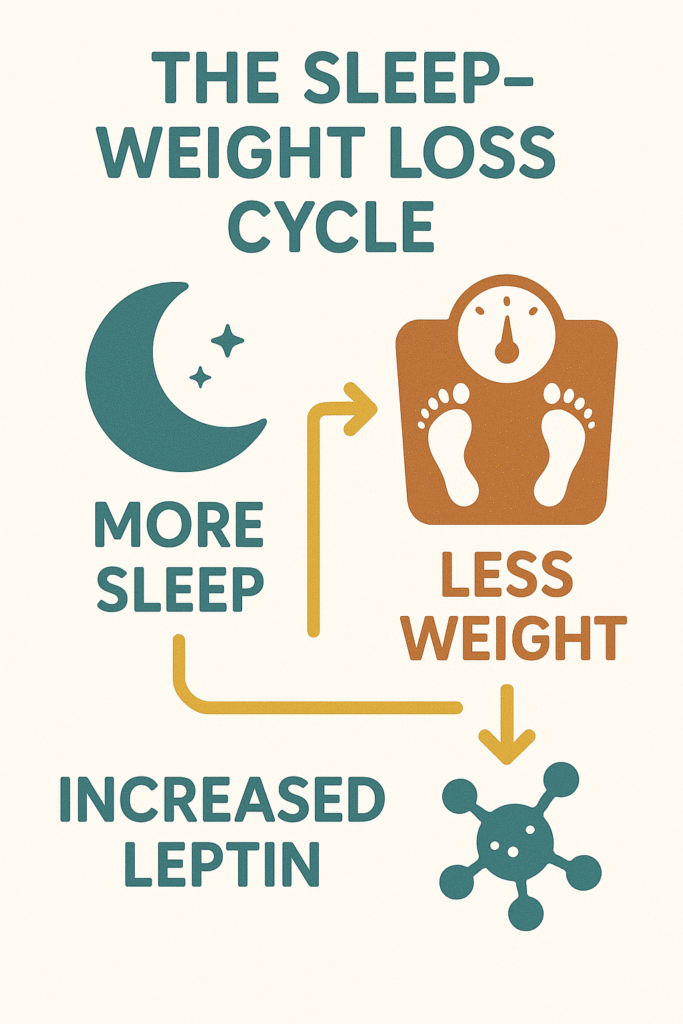The Ultimate Guide to Better Sleep and Fat Loss: Unlocking the Secrets to Optimal Health
The Model Health Show with Shawn Stevenson | June 17, 2025
Sleep is often the first thing we sacrifice in the name of productivity. But what if I told you that better sleep could be the key to not only feeling more energized but also losing fat and improving your overall health? In this comprehensive guide, we’ll dive deep into the science of sleep, explore the connection between your gut and sleep quality, and provide practical tips to help you sleep smarter and live better.
Why Sleep is the Foundation of Health
Sleep is one of the most underrated pillars of health. According to Dr. Mark Hyman and sleep expert Sean Stevenson, we’re sleeping about two hours less per night than we did 100 years ago, and the quality of that sleep has significantly declined. Poor sleep isn’t just about feeling tired—it’s linked to serious health issues like cognitive decline, dementia, weight gain, and even increased mortality.
Key Takeaway: Sleep is not a luxury; it’s a necessity. Prioritizing sleep can transform your health, body composition, and overall well-being.
The Gut-Sleep Connection: How Your Microbiome Affects Your Sleep
One of the most fascinating discoveries in recent years is the connection between your gut microbiome and sleep quality. Your gut is often referred to as your “second brain,” and for good reason. It produces neurotransmitters like serotonin, which is a precursor to melatonin, the hormone that regulates your sleep-wake cycle.
The Role of Serotonin and Melatonin
- Serotonin: About 80-90% of your body’s serotonin is produced in your gut. This “feel-good” neurotransmitter is essential for mood regulation and also plays a critical role in sleep.
- Melatonin: While most people associate melatonin with the pineal gland in the brain, your gut actually produces 400 times more melatonin than your brain. This means that a healthy gut is crucial for optimal melatonin production and, consequently, better sleep.
Practical Tip: To support your gut microbiome, avoid processed foods, limit antibiotic use, and incorporate fermented foods like kimchi, kefir, and sauerkraut into your diet. These foods are rich in probiotics that promote a healthy gut.
The Impact of Blue Light on Sleep
In our tech-driven world, blue light from screens is one of the biggest culprits behind poor sleep. Harvard researchers have confirmed that blue light suppresses melatonin production and elevates cortisol levels, making it harder to fall asleep and stay asleep.
Key Takeaway: Every hour you spend on your device at night suppresses melatonin production for about 30 minutes. If you’re on your phone for three hours before bed, you’re essentially delaying your body’s ability to produce melatonin for nearly two hours into your sleep cycle.
How to Combat Blue Light
- Blue Light Blocking Glasses: These glasses can help reduce the impact of blue light on your melatonin production.
- Night Shift Mode: Use the night shift feature on your phone or apps like f.lux on your computer to reduce blue light exposure in the evening.
- Screen Curfew: Establish a screen curfew at least 30 minutes before bed. Use this time to read, meditate, or engage in relaxing activities.
The Sleep-Weight Connection: How Sleep Affects Fat Loss
Did you know that sleeping more can help you lose fat? A study conducted by the University of Chicago found that participants who slept 8.5 hours per night lost 55% more body fat compared to those who slept only 5.5 hours, even though both groups followed the same calorie-restricted diet.
The Role of Melatonin in Fat Loss
Melatonin isn’t just a sleep hormone—it’s also a powerful fat-burning hormone. Research from the Journal of Pineal Research shows that melatonin increases the mobilization of brown adipose tissue (brown fat), a type of fat that burns calories and boosts metabolism.
Practical Tip: To maximize fat loss, aim for 7-9 hours of quality sleep per night. Create a sleep-friendly environment by keeping your bedroom cool, dark, and quiet.


The Importance of Morning Sunlight and Exercise
A great night of sleep starts the moment you wake up. Exposure to natural sunlight in the morning helps reset your circadian rhythm and lowers cortisol levels in the evening, making it easier to fall asleep at night.
Morning Exercise for Better Sleep
A study by Appalachian State University found that morning exercisers spent more time in deep, restorative sleep and had a 25% greater drop in blood pressure at night. Even just 5 minutes of exercise in the morning can make a significant difference.
Practical Tip: Try a quick morning workout routine, like the 7-minute workout popularized by The New York Times. It’s a simple yet effective way to kickstart your day and improve your sleep quality.
Nutrients for Better Sleep
What you eat plays a crucial role in how well you sleep. Certain nutrients can help regulate your sleep cycles and improve sleep quality.
Top Sleep Nutrients
- Vitamin C: A study published in the Public Library of Science found that vitamin C deficiency is linked to frequent night-time awakenings. Boost your intake with citrus fruits, strawberries, and superfoods like Camu Camu berries.
- Calcium: Research in the Journal of Sleep shows that calcium deficiency can lead to interrupted sleep patterns. Get your calcium from dark leafy greens, tahini, and canned salmon with bones.
- Magnesium: Known as the “relaxation mineral,” magnesium is essential for over 300 biochemical processes in the body. Magnesium deficiency affects 48% of Americans and is linked to insomnia, anxiety, and muscle cramps. Incorporate magnesium-rich foods like spinach, almonds, and pumpkin seeds, or try topical magnesium for better absorption.
- Omega-3s: A study by the University of Oxford found that omega-3 fatty acids help promote deeper, more restful sleep. Include fatty fish like salmon, walnuts, and flaxseeds in your diet.
Practical Tip: Incorporate these sleep-supporting nutrients into your daily meals. For example, start your day with a smoothie packed with spinach, berries, and flaxseeds, and enjoy a dinner of grilled salmon with a side of steamed greens.
Creating a Sleep Sanctuary
Your bedroom environment plays a significant role in your sleep quality. Transform your bedroom into a sleep sanctuary by following these tips:
- Keep It Cool: The ideal sleep temperature is between 60-67°F (15-19°C).
- Eliminate Noise: Use earplugs or a white noise machine to block out disruptive sounds.
- Remove Electronics: Keep TVs, laptops, and phones out of the bedroom to create a screen-free zone.
- Invest in a Quality Mattress: A comfortable mattress is essential for restorative sleep.
Key Takeaway: Your bedroom should be a place of relaxation, not a hub for work or entertainment. Create a calming environment that signals to your brain that it’s time to wind down.
The Power of Meditation for Better Sleep
Meditation is a powerful tool for calming the mind and improving sleep quality. A study published in the American Academy of Sleep Medicine found that morning meditation helps improve sleep latency, sleep efficiency, and overall sleep quality.
How to Start a Meditation Practice
- Start Small: Begin with just 5-10 minutes of meditation per day. Use apps like Calm or Headspace to guide you.
- Find Your Style: Whether it’s mindfulness, Qigong, or Transcendental Meditation, choose a practice that resonates with you.
- Make It a Habit: Incorporate meditation into your morning or evening routine to create a consistent practice.
Practical Tip: If you’re new to meditation, try a simple breathing exercise: Inhale for 4 counts, hold for 4 counts, exhale for 6 counts, and repeat for 5 minutes.
The Role of Stress in Sleep Disruption
Stress is one of the biggest enemies of good sleep. When you’re stressed, your body produces more cortisol, the “stress hormone,” which can interfere with your ability to fall asleep and stay asleep. Chronic stress can lead to a vicious cycle of poor sleep and increased stress levels, making it even harder to break free.
How to Manage Stress for Better Sleep
- Practice Gratitude: Keeping a gratitude journal can help shift your focus from stressors to positive aspects of your life.
- Engage in Relaxation Techniques: Techniques like progressive muscle relaxation, deep breathing, and guided imagery can help calm your mind before bed.
- Set Boundaries: Learn to say no to unnecessary commitments and create a balanced schedule that allows time for relaxation and self-care.
Practical Tip: Try a bedtime routine that includes 10 minutes of journaling or reading a calming book. This can help signal to your brain that it’s time to wind down and prepare for sleep.
The Connection Between Sleep and Hormones
Sleep plays a critical role in regulating your hormones, which in turn affect everything from your metabolism to your mood. Poor sleep can disrupt the balance of key hormones like leptin and ghrelin, which control hunger and satiety. When you’re sleep-deprived, your body produces more ghrelin (the hunger hormone) and less leptin (the satiety hormone), leading to increased cravings for carbs and sugar.
Key Takeaway: Prioritizing sleep can help regulate your hormones, reduce cravings, and support weight loss.
Final Thoughts: Sleep Smarter, Live Better
Sleep is the foundation of health, and optimizing your sleep can have a ripple effect on every aspect of your life—from weight loss and cognitive function to emotional well-being and relationships. By addressing the root causes of poor sleep, such as gut health, blue light exposure, and nutrient deficiencies, you can unlock the full potential of your body and mind.
Key Takeaway: Start small by incorporating one or two of these strategies into your daily routine. Whether it’s a morning workout, a screen curfew, or a magnesium-rich meal, every step you take toward better sleep is a step toward a healthier, happier you.
Top 5 Tips for Better Sleep
- Get 5 Minutes of Morning Exercise: Reset your cortisol rhythm with a quick workout.
- Expose Yourself to Natural Light: Spend time outdoors or use a light box to regulate your circadian rhythm.
- Create a Sleep Sanctuary: Make your bedroom a place of relaxation and rest.
- Support Your Gut Health: Eat fermented foods and avoid processed foods.
- Practice Meditation: Calm your mind and improve sleep quality with a daily meditation practice.
By following these tips and prioritizing sleep, you can transform your health and achieve your weight loss goals. Remember, a great night of sleep starts the moment you wake up. Sleep smarter, live better, and unlock your full potential.

Eat Smarter Family Book
Get access to 100 easy, family-friendly recipes to boost your metabolism, up-level your energy, and start living a happier life with Shawn Stevenson's best selling companion cookbook - Eat Smarter Family Cookbook: 100 Delicious Recipes to Transform Your Health, Happiness, and Connection.
What’s your biggest sleep challenge? Share your thoughts in the comments below, and let’s start a conversation about how we can all sleep better and live healthier lives!
Related Post





